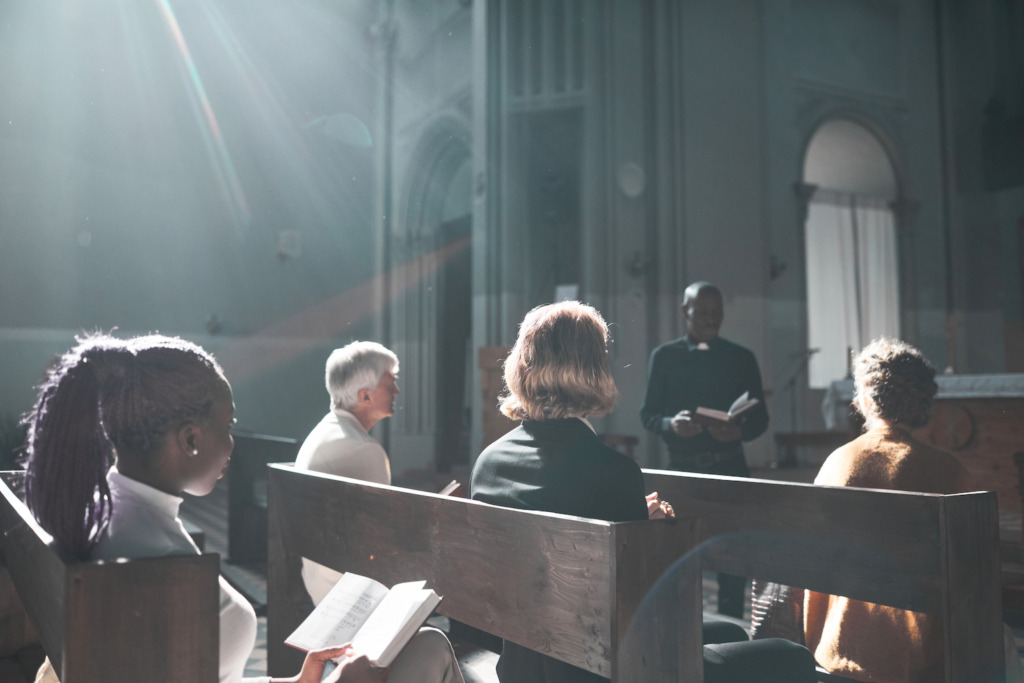Question:
Why do some religions say that the Sabbath day is Saturday while others — including Catholics — say it’s on Sunday? (Eldon, Missouri)
Answer:
No, Catholics do not say that the Sabbath is on Sunday. The Sabbath is on Saturday, as it was in the Old Testament when God rested from all the work he had done in creation (Gn 2:2- 3) and as it is observed by Jews today.
Christians, though, celebrate Sunday instead, because that is the day on which Jesus rose from the dead and the day on which the Holy Spirit came upon the apostles.
As the Catechism of the Catholic Church explains: “Sunday is expressly distinguished from the Sabbath which it follows chronologically every week; for Christians its ceremonial observance replaces that of the Sabbath. In Christ’s Passover, Sunday fulfills the spiritual truth of the Jewish Sabbath and announces man’s eternal rest in God” (No. 2175).
What Christians are celebrating instead of the Sabbath is “the Lord’s Day,” and that has been happening since the first century. As the Acts of the Apostles relates: “On the first day of the week, when we gathered to break bread, Paul spoke to them” (20:7).
So for Christians, Sunday is the preeminent holy day of the week, the day on which we refrain from servile work, devote ourselves to the Eucharist, to prayer and family gatherings.
Around 110, St. Ignatius, bishop of Antioch and disciple of the apostle John, proclaimed: “Let every friend of Christ keep the Lord’s Day as a festival, the resurrection-day, the queen and chief of all the days.”
Question:
I’m looking for some direction on an old Catholic tradition — the nativity fast. Although I’m a lifelong Catholic, educated in Catholic schools, I had never heard of this until I watched a documentary about how Catholics celebrated Christmas during the Renaissance.
I’d love to learn how I can participate in this fast and why the tradition went away. As a Catholic millennial, I am looking for ways to be more introspective this Christmas and focus on the birth of Jesus, as it is easy to get distracted by all the festivities that come with this season. (Newport News)
Answer:
The nativity fast is still practiced today by the Eastern Orthodox Church and by Eastern- rite Catholics. It lasts for 40 days — from Nov. 15 through Dec. 24 — and offers Christians the opportunity to prepare for the feast of Christmas by disciplining their bodies.
By abstaining from certain food and drink — particularly from meat, fish, dairy products, olive oil and wine — as well as by focusing more on prayer and almsgiving, the nativity fast seeks to make one more conscious of his or her dependence on God.
Christmas Eve (Dec. 24) is a strict fast day, called Paramony (literally, “preparation”) on which no solid food is eaten until the first star of the evening is seen in the sky. In general, those participating in the nativity fast are encouraged to spend more time in reflective thought and in reading the Scriptures.
Question:
Protestants believe in the rapture, and this was never really discussed in Catholic school. What is the Catholic Church’s belief? It would be wonderful to know that we will not have to live through the tribulation. (Connersville, Indiana)
Answer:
If, by the “rapture” one understands that, at the second coming of Jesus, all the faithful, living and dead, will undergo a bodily assumption into heaven — then, yes, Catholics do believe this.
But there are other elements in what is sometimes understood as “rapture theology” that are not consistent with Catholic teaching — especially the notion that there will be a “secret” coming of Christ where he will snatch believers up to heaven and leave others behind to experience a period of severe tribulation.
Supporters of this view point to the passage in Paul’s First Letter to the Thessalonians, which says, “For the Lord himself … will come down from heaven, and the dead in Christ will rise first. Then we who are alive, who are left, will be caught up together with them in the clouds to meet the Lord in the air” (4:16-17).
The Catholic understanding of this passage is simply that those believers who are alive at Christ’s second coming will not experience death but will be transformed in glory and join the saints already with the Lord. Catholic theology finds no evidence to support a belief in a subsequent period of tribulation and chaos.

